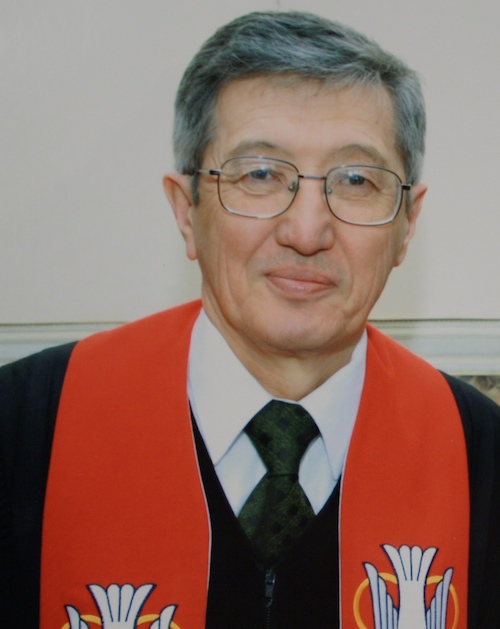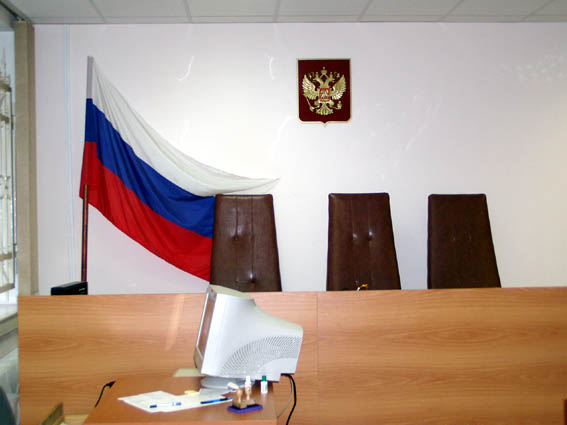
Bakhytzhan Kashkumbaev, the pastor of the Blagodat (Grace) Church in the city of Astana, Kazakhstan, has been charged with exerting a “psychological influence” on his congregation and using a “hallucinogenic drink” during Communion, as well as inflicting “serious damage on the health of his parishioners.” Pastor Kashkumbaev was placed under arrest, and languishes behind bars regardless of the fact that his “victim,” Liazzat Almenova, has submitted a statement to the police to the effect that the pastor did nothing to damage her health.
The "hallucinogenic drink" turned out to be red tea from local suppliers, used for the non-alcoholic Communion, and, according to the investigators, the “psychological influence” was caused by prayers and chants. These events are taking place against the backdrop of changes in Kazakh law which were made in 2011 in regard to religious organizations. President Nazarbayev signed the law "On Religious Activities and Religious Associations" (the Religion Law) and the law “On Amendments and Addenda to Some Legislative Acts on Issues of Religious Activities and Religious Organizations” (the Administrative Law), thus widening the range of sanctions for violations of the Religion Law.
Certain provisions of the Religion Law raise significant concerns as they appear to limit the rights of certain individuals to practice their religion; to be inconsistent with Kazakhstan’s Constitution, which guarantees freedom of religion; to be inconsistent with UN and OSCE human rights instruments to which Kazakhstan has committed; and to contravene the religious freedom principles enumerated in the Preamble to the Religion Law.
Government authorities have been aggressively enforcing the new Religion Law since the President signed it. Kazakhstan's senior state religious affairs official, Kairat Lama Sharif, has described the fall in the number of registered religious communities as a "positive dynamic" after 579 small religious groups (with fewer than 50 adult citizen members) were stripped of registration and deprived of their right to legally exist. And as newly de-registered groups, they have been warned by government officials to stop all activity or risk administrative and even criminal sanctions.
Targets have included Evangelicals, Baptists, Presbyterians, Seventh-day Adventists, Methodists, independent Muslim mosques, Ahmadi Muslims, Scientologists, Jehovah’s Witnesses, Hare Krishnas and Unificationists. Even Catholics have expressed concerns and experienced early difficulties for foreign priests and nuns, and the Jewish community fears that no foreign rabbi will volunteer to work in Kazakhstan because of new visa regulations that appear to be part of a government policy to increasingly isolate religious communities from believers outside of the country.
Let’s, however, go back to the arrested pastor, Reverend Kashkumbaev. Someone had to go back to the mid-1970s, back to the dusty tomes used by KGB graduates, to come up with allegations of “psychological influence”, and to what end? Why did the repressions, in the light of the new law, start with Pastor Bakhytzhan? After all, there are numerous Protestant denominations in Kazakhstan which operate in relatively peaceful co-existence, and some of these have even been allowed to renew their registration.
To elucidate these issues, I turned to members of the Blagodat congregation, including the Pastor’s closest friends, and also attempted to analyze the official statements on the case. Note that all of the officials involved in this case rejected my requests for interviews
“We all understand which way the wind blows,” said one of the church members. “80% of the congregation is Kazakh, many have converted from Islam. The Pastor himself is Kazakh and was also formerly Muslim. In Kazakhstan, the thinking is – if you are Kazakh, that means you are Muslim. But if you are Kazakh and Christian, that means something is wrong.”
Many people are convinced that the Pastor is being punished for his open sermons on the Gospels, and this punishment is initiated by excessively zealous representatives of the security agencies on behalf of the Islamic status quo. “My impression is that they want to kill him,” says one woman, a member of the parish. “Bakhytzhan had a heart attack in 2010. He was taken to the hospital in critical condition, but survived, although not without an impact on his health. Now he's lying in a jail cell, but they won't let us provide him with warm clothes, or even his medications, despite the trauma he is experiencing as a result of this arrest.”
The case against the Blagodat Church is not the only sign that an era of repression has begun. Kazakh officials have engaged in widespread raids of private homes and places of worship. On Easter Sunday, a private residence was raided for hosting nine members of a small congregation of the New Life Pentecostal Church who were meeting for private worship. The raid was conducted by five police officers. Church members were summoned to the police station and interrogated for six hours. Fines were subsequently imposed on several of the members. Jehovah’s Witnesses have also been subjected to raids. Such raids do not appear to be rare occurrences. At least eight separate meetings for worship were raided by authorities in January 2013.
Many people from the Christian communities in Kazakhstan are convinced that bringing absurd charges against the Pastor and confining him to jail are not random events. This is an attempt to intimidate people, and can also be seen as a preventive measure primarily aimed at Kazakhs. It is a “trial balloon” before the start of large-scale repressions against unwanted religious organizations.
Bakhytzhan Kashkumbaev’s arrest is part of a system which is being created under the auspices of the government of Kazakhstan. This is demonstrated by the fact that the searches carried out in connection with the case are underway in Almaty, the business capital of Kazakhstan. As one of the employees of the IOPC Fund told me, the National Security Committee (based in Astana) searched the offices of the Fund in connection with the Blagodat Church. They wanted to confiscate the publications of “Dostoynie otvety”(“Worthy Answers”) that were translated into Russian and Kazakh. The books were not found in the office, but the Fund's documents were confiscated, as well as bookkeeping records and the acceptance-delivery receipts for some literature from 2006-2007 (The Blessed Path of God, My First Bible, the Bible in the Uyghur language). During the search, they found other publications, and informed local authorities, who confiscated these after the NSC completed their search
 Thursday, July 25, 2013 at 05:35PM
Thursday, July 25, 2013 at 05:35PM 




